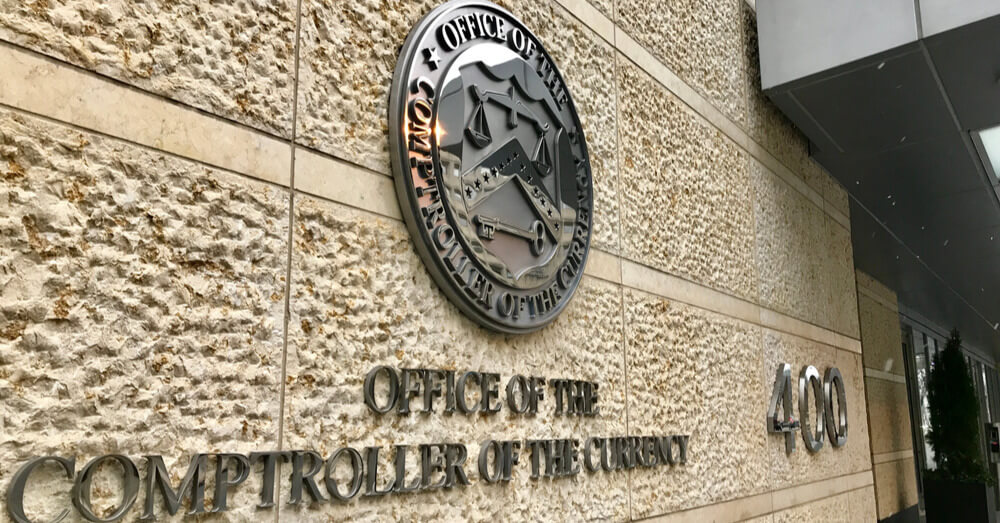
The OCC allows these entities to hold “reserves” for customers who issue select stablecoins
The Office of the Comptroller of the Currency (OCC) issued a letter yesterday that clarified the authority of national banks and federal savings associations to keep “reserves” on behalf of customers who issue select stablecoins.
Brian P Brooks, the Acting Comptroller of the Currency, explained that this alternative helps provide better regulatory stability for banks.
“National banks and federal savings associations currently engage in stablecoin-related activities involving billions of dollars each day. This opinion provides greater regulatory certainty for banks within the federal banking system to provide those client services in a safe and sound manner.”
The letter formally allows US financial institutions to hold deposits as reserves for stablecoins that represent fiat currency, such as the US Dollar.
The OCC is responsible for regulating large national banks like JP Morgan Chase and Wells Fargo; this means that the guidance from this agency only applies to national associations and federal banks. The Office published the letter in response to a question from the banking industry regarding its new guidance in certain situations.
Fellow regulators, the US Securities and Exchange Commission (SEC), have expressed their support for the OCC’s actions.
In the OCC’s letter, stablecoins are defined as cryptocurrencies that are backed by assets like fiat currency — in particular, the US Dollar. The SEC reminds the public that the terminology used for certain digital assets may not align with how it is defined under their laws and regulations.
This means that just naming a cryptocurrency as a “stablecoin” would not excuse the cryptocurrency from being declared as security.
“We believe that market participants may structure and sell a digital asset in such a way that it does not constitute security and implicate the registration, reporting, and other requirements of the federal securities laws,” the statement read.
“However, the label or terminology used to describe a digital asset or a person engaging in or providing financial activities or services involving a digital asset, may not necessarily align with how that asset, activity, or service is defined under the laws and rules administered by the SEC.”
The SEC encourages individuals or parties that are planning on structuring and selling a digital asset to contact them with any questions they may have.
“The Staff stands ready to engage with market participants to assist them and to consider providing, if appropriate, a “no-action” position regarding whether activities with respect to a specific digital asset may invoke the application of the federal securities laws,” the letter concluded.

